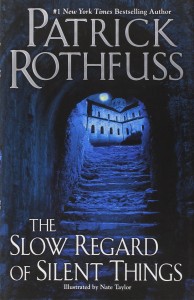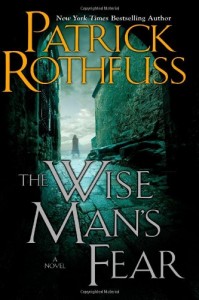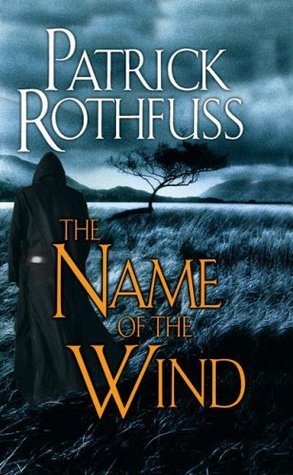 Although not the concluding third day of his Kingkiller Chronicles[1][2], Patrick Rothfuss has recently released a book set in that world.[3] The Slow Regard of Silent Things is about a week in the life of one of the residents of, um, that magic college place not named Hogwarts where Kvothe is known to hang out. Which description is proof that I’ll need to reread these books once the finale is announced.[4]
Although not the concluding third day of his Kingkiller Chronicles[1][2], Patrick Rothfuss has recently released a book set in that world.[3] The Slow Regard of Silent Things is about a week in the life of one of the residents of, um, that magic college place not named Hogwarts where Kvothe is known to hang out. Which description is proof that I’ll need to reread these books once the finale is announced.[4]
But anyway, it’s about Auri, who hides from everyone and has reminded me just a very small amount of Lazlo from Real Genius if he were a Manic Pixie Dream Girl but without the sexual connotations. Which throws me headlong into what I had thought I was going to be edging towards. See, I have this website, where I write reviews of things. Although it’s dressed up a bit in the theme I have chosen, there’s really no connection between what I use it for and what it is named. It’s just that back in the ’90s, I really wanted a domain, and the domain that I wanted the most was the one named after my very favorite character in all of Sandman[5].
The upshot of which is, except for my reviews of the actual Sandman books, Auri in this story is the closest I’ve ever come on my website to finding Delirium in the wild, as it were. She is by turns breathless with happiness, reckless as lemmings, crushed under by the weight of the world, determined as any hero, or hopelessly lost at sea. I smiled with her and my heart broke for her, sometimes at the same time. I guess my point is that I cannot imagine a story more calculated to enchant me, personally. I cannot say that I identify with her, or even wish that I did. But as with Delirium herself, I wish I could heal her.
But I guess a point of those stories is that perfect delight cannot long survive the world.
[1] Spoiler alert for footnote 2
[2] Total number of kings killed thusfar: zero
[3] Also, the author’s afterword indicates there’s a short story I missed sometime in the past year or two. I kind of hate how easy it is for that to happen. Thanks a lot, compilations!
[4] On the one hand, I like not waiting for a series to be complete before I read it. On the other, I resent having to reread books by the time I’m getting near the end, since I’d rather just have the knowledge stored up and read new stuff instead. But my memory is not so eidetic as I’d like. It is a conundrum!
[5] And high in my top five favorite fictional characters, period.

